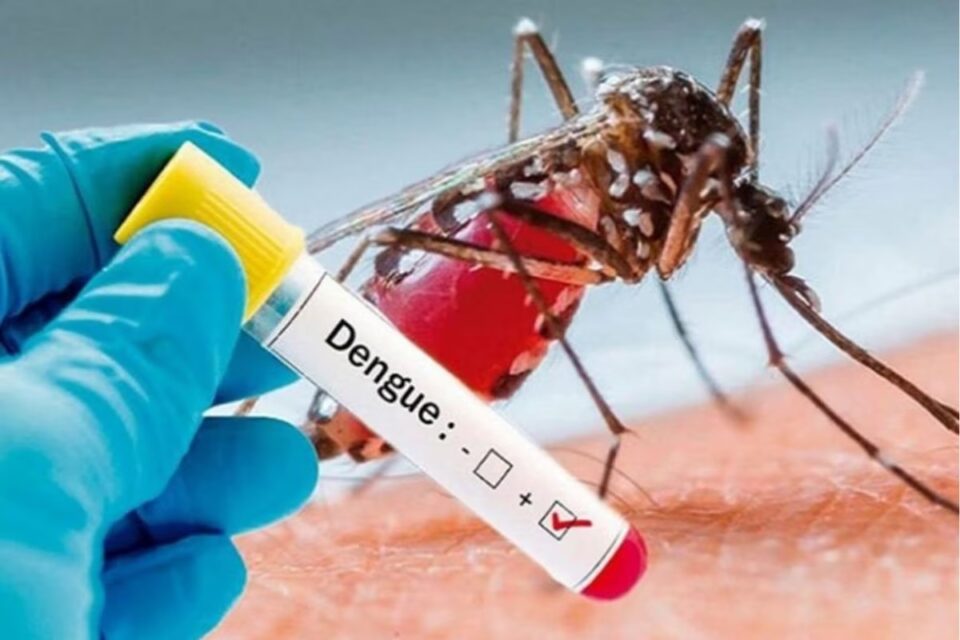Dengue is a common disease in tropical countries such as in Malaysia. Dengue cases are high in places with stagnant water where the Aedes mosquito is able to reproduce and live. What is with the Aedes mosquito often blamed for dengue fever? The Aedes species of mosquito, specifically female, that is infected by dengue virus is able to infect other humans through mosquito bites. A mosquito is said to be an infected mosquito when it bites a human that already has the dengue virus circulating in the body. Dengue virus is easily transmitted from a person to another with the mosquito being the vector or the carrier.
Dengue fever is considered to be a rapid viral disease of mosquito-borne. Although it is not a contagious disease because it is unable to be spread from one person to another, the ability for a person to be infected by dengue is still high especially when the number of mosquitoes is high. Since dengue is caused by the virus transmitted from the mosquito, eliminating dengue fever caused by the possible bites of mosquito is the best way to prevent dengue.
It is true that prevention is better than cure. Dengue can be prevented through various ways. Example of dengue preventions are:
1- Collect unwanted containers and properly dispose of solid waste that could hold water. This could be eliminating old buckets, tyres, plastic containers and vases.
2- Covering the water storage when not in use.
3- Emptying and cleaning water storage containers on a weekly basis.
4- Plant pot plates or pet containers that often have been overlooked must be cleaned thoroughly by scrubbing.
5- Use insecticides in water storage especially outdoor containers. Add larvicides according to the recommended dose as stated on the product labels.
6- Use aerosol insect repellent, mosquito coils and electric vapour mats to keep mosquitoes away.
7- Protect yourself from mosquito bites by using mosquito nets when taking naps or rest in daytime.
8- Use special medicated lotions that are designed to help steer away mosquitoes.
9- Wear long-sleeved clothes and long dresses or bottoms to cover the whole body from being exposed to possible mosquito bites.
10- Avoid heavily-populated residential areas.
Although prevention helps to decrease the likelihood of a person to get infected by dengue virus, this does not mean it can entirely wipe out all the dengue cases and most definitely does not mean dengue cases can be totally. Hence, what should you do if you suspect yourself or the person around you shows symptoms of dengue? First thing first, symptoms such as high-grade fever that last 2 to 7 days should immediately raise concern, especially when it is associated with other symptoms like severe headaches, muscle pain, joint pain, pain behind the eyes or skin rash.
When such symptoms are spotted, a person is advised to get medical advice as soon as they can. Such symptoms should raise high suspicion of dengue fever if there are known cases of dengue cases in the neighbourhood area. Early diagnosis and prompt treatment or medical support can greatly reduce the likelihood of a person to experience severe dengue and high chances of complications such as internal bleeding or organ dysfunction that is associated with life-threatening conditions which may end up with death. Since there is no specific treatment for dengue, what can be done by a healthcare facility is to treat existing symptoms and to prevent deteriorating health status. It is also likely a person will be asked to stay in hospital for the next 24 to 48 hours to enable medical professionals to make observations and to give medical intervention when needed since during this time is the most critical phase.
Do you know that dengue does not only occur in Asian regions? Dengue cases can be found throughout the year in certain parts of America and Africa. This means that there is also the possibility of the dengue cases being imported or exported to other countries. This is why it is very important to tackle dengue by taking prevention steps. In Malaysia, dengue tends to peak around May to September during the dry southwest and November to March of rainy northeast monsoon seasons. It is even predicted that this year of 2023 may be the peak of a major outbreak for dengue fever.
In essence, it is best to take preventative measures against dengue. Just like the classic saying, “prevention is better than cure”. Although most cases of dengue are considered to be mild and may goes away without treatment, it is best to get checked by doctors when symptoms are presented and of course to be taken seriously when there are serious signs that could be life-threatening such as nosebleed or bleeding gums, sudden severe abdominal pain, breathing difficulty, vomiting more than 3 times in 24 hours, vomiting blood, presence of blood in stool and fatigue. Serious signs should be clear evidence that the person needs to get immediate medical care.

